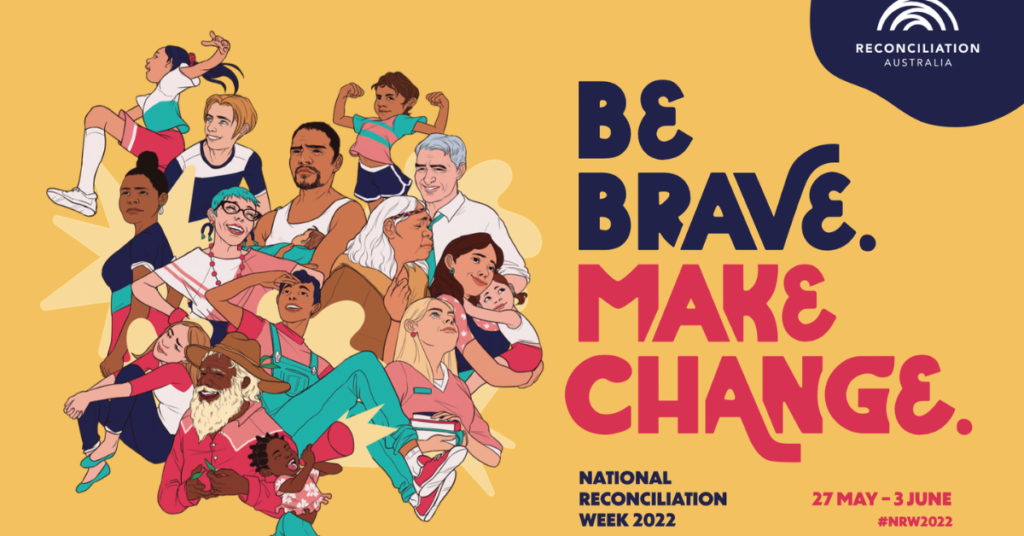More than just seven days to stop and reflect, Reconciliation Week is a chance for schools across the country to incorporate indigenous learnings in every aspect of their curriculum, and help all Australians move forward as one.
What is Reconciliation Week?
This week is Reconciliation Week. Reconciliation is required for Aboriginal and Torres Straight Islanders to reach their full potential; it is required for the Australian community to move forward positively. Education is the key to achieving reconciliation and it won’t happen in just one week per year. But this week is a reminder to all educators that we need to incorporate Aboriginal Education across all KLAs as often as we can.
Every year, from the 27th of May to 3rd June, National Reconciliation Week is observed in Australia. These dates commemorate two remarkable milestones of importance for the reconciliation process.
On the 27th of May 1967 a referendum was held that changed the course of our lives for the better. Australians voted overwhelmingly to amend the Constitution for the Commonwealth to make laws for Aboriginal people, including them in the census.
On the 3rd of June 1992, the High Court recognised the land rights of the Meriam people, traditional owners of the Murray Islands (which include the islands of Mer, Dauer and Waier) in the Torres Strait. This is now known as the Mabo decision.
Why it matters
It is important for every Australian to understand where we have been, in order to plan effectively for the future and avoid the wrongs of the past. Our current beliefs and actions are a reflection of the education we receive about the world and our shared history. It is not enough to be taught that humans are all equal and all have the same rights if we do not learn the history of what happens when we ignore these basic principles. Time and time again, historical fact demonstrates that power can lead to these innate human rights being ignored.
When Captain Cook came to Australia, he declared it “Terra Nullius” a land belonging to no-one. This wasn’t because it was true but because it was beneficial for those in power to say it was true. Aboriginal people have been paying for that declaration for hundreds of years. That is no fault of anyone living today, however, we must acknowledge that these historical events are still having a negative effect on Aboriginal Australians today.
The impact
By teaching the history and culture of Aboriginal people in Australia before, during and after invasion we:
- Develop a community who respect and value the richness of Aboriginal culture and experience.
- Generate understanding of, sympathy for and connections across Aboriginal and non-Aboriginal community members.
- Create critical thinkers who identify parallels across time and act to deter history from repeating.
- Empower citizens to know their rights and freedoms to; live without discrimination, protest unjust laws, protect free speech, and be born free and equal.
Steps to take for schools
Things that you can do this week and in the future are:
- Ask Aboriginal staff in your school if they have an interest in sharing cultural knowledge and skills with your students and/or staff.
- Contact your local Aboriginal Education Consultancy Group and ask if they have any learning resources, speakers, language resources, historical artifacts, activities or sites they can provide or recommend for educational purposes.
- Visit the New South Wales AECG – NSW Aboriginal Education Consultative Group and check out their free resources and information.
- Investigate other free and paid resources that can be incorporated into your school or classroom and start planning for 1 – 2 activities per week.
Some free online resources can be found at the following websites:
A general list of Aboriginal and Torres Strait Islander Teaching Resources
Aboriginal and Torres Strait Islander Histories and Cultures – ABC Education
‘Dust Echoes’ – A collection of twelve Dreamtime stories on video from Central Arnhem Land
Physical Education – Traditional Yulunga Indigenous Games from Sport Australia
Physical Education – Traditional Indigenous Games from the NSW Government
Art – A guide to Aboriginal art and symbolism
Even if you aren’t prepared for this week, it is never too late to start educating for reconciliation. We owe it to all of our students.
ClassCover acknowledges and pays respect to the past, present and future Traditional Custodians and Elders of this nation. We support the continuation of cultural, spiritual and educational practices of Aboriginal and Torres Strait Islander peoples.



